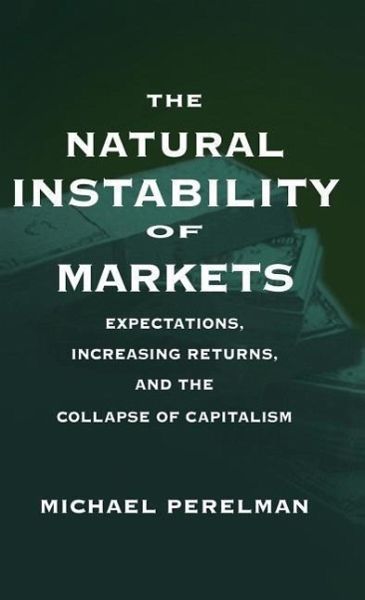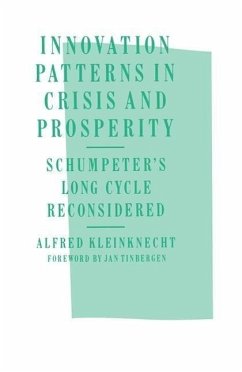
The Natural Instability of Markets
Expectations, Increasing Returns, and the Collapse of Capitalism
Versandkostenfrei!
Versandfertig in über 4 Wochen
52,99 €
inkl. MwSt.

PAYBACK Punkte
26 °P sammeln!
As Socialist states struggle to transform themselves into market economies and the United States privatizes everything from schooling to policing, the current crises in Russia and East Asia suggest that something might be amiss. In the rush to open societies to the benefits of competition, economists have overlooked the fundamental instability of competitive markets. What had seemed to be an invincible capitalist juggernaut may be reaching its apotheosis. A close look at market economies is more timely and crucial than ever. Michael Perelman argues that capitalism's victory is temporary, based...
As Socialist states struggle to transform themselves into market economies and the United States privatizes everything from schooling to policing, the current crises in Russia and East Asia suggest that something might be amiss. In the rush to open societies to the benefits of competition, economists have overlooked the fundamental instability of competitive markets. What had seemed to be an invincible capitalist juggernaut may be reaching its apotheosis. A close look at market economies is more timely and crucial than ever. Michael Perelman argues that capitalism's victory is temporary, based as it is on an unrealistic understanding of the system's inherent risks. He analyzes the nature and causes of crisis within a market society, and along the way, he re-examines one of capitalism's most primary and unquestioned tenets, that the more competition there is, the better off society will be. This accessible book, garnished with plenty of examples and anecdotes, is an open-minded injection of common sense into the understanding of a capitalist society.














